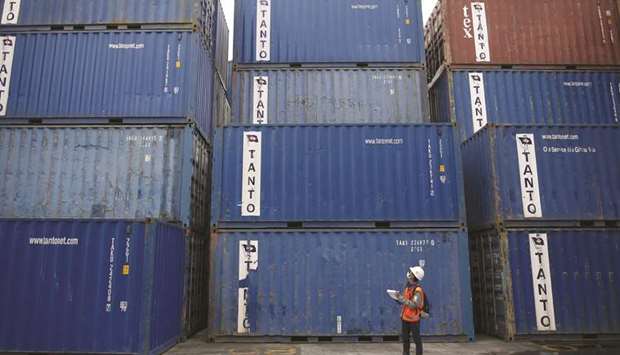Southeast Asia’s largest economy grew 5.27% from a year earlier in the second quarter, statistics bureau data showed yesterday.
This was Indonesia’s fastest pace since October-December 2013, and easily topped the first quarter’s 5.06% and a Reuters poll projection of 5.16%.
The latest number is the best since Joko Widodo, who pledged to get growth up to 7%, became president in 2014 and may give him a little boost as he seeks re-election in 2019.
But there are multiple factors making it unlikely Indonesia can keep seeing faster growth rates, starting with higher US interest rates – which have hit the rupiah currency – and possible collateral damage from the US-China trade war, which can hit Jakarta’s commodity exports.
Also, pivotal domestic consumption, which accounts for more than half of gross domestic product, will not be as strong as the second quarter, when it grew 5.14% – the highest in four years – lifted by Ramadan and celebrations after it.
A survey released by the statistics bureau on Monday showed consumers were turning pessimistic in the third quarter due to weaker income projection. Higher interest rates may dampen demand.
Since mid-May, Bank Indonesia (BI) raised its key rate by 100 basis points to support the rupiah, and it might not be done hiking.
ANZ said it believes BI will increase the rate another 25 basis points to 5.50% next week.
Also, Indonesia’s efforts to get more tourists to help contain its current account deficit will be hurt by powerful earthquakes jolting Lombok and Bali in the past nine days.
Some tourists were exiting the islands and an association of Indonesian travel agents said tour cancellations were rising yesterday.
While April-June’s economic growth was impressive, the government “will still need to embark on a Mission: Impossible-like stunt” to reach its target of full-year 5.4% growth, said Satria Sambijantoro, economist at Bahana Sekuritas.
Meanwhile, the government is reviewing capital goods imports and infrastructure projects to narrow the current account deficit, which could affect investment growth.
Investment is Indonesia’s second growth engine and it already slowed significantly to 5.87% in the second quarter, after posting over 7% growth rate in the previous three quarters.
The statistics bureau attributed this to “nearly no new construction” of office buildings and shopping malls.
Capital Economics said it doubts Indonesia can maintain the second quarter’s expansion pace and projected growth “to average just 5% over the next couple of years”.
But some economists see the second quarter as a proof of Indonesia’s resilience amid a trade war.
The April-June trends signalled “that economies with a stronger domestic consumption story will provide a counter weight to a weak trade balance, particularly if global demand moderates on trade war concerns”, said Radhika Rao, DBS economist in Singapore.

